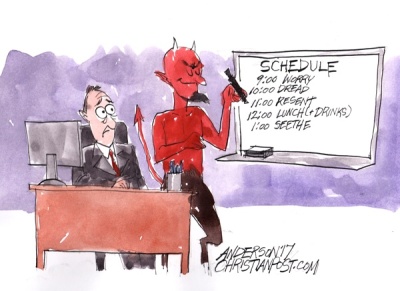Suffering, abuse, and the problem of evil . . . for atheists

In his book The Cross of Christ, John Stott said that the “the fact of suffering undoubtedly constitutes the single greatest challenge to the Christian faith.” What is the problem of evil? It is the apparent conflict or contradiction between the existence of evil, suffering, and the existence an all-powerful, all-knowing, and ever-present God who is also perfectly good. As the problem goes, such a God would stop evil and suffering, if He existed. Another form of the problem of evil focuses on the amount of evil, suggesting that while God may have good reason for some evil, surely the amount of evil we experience makes it unlikely that the God of Scripture exists.
Why is this argument such a challenge to the Christian faith? For many people, the argument is not about the logical inconsistencies, probability, or deductive logic. For most people, the problem of evil is about a sick child, an experience of abuse, personal exposure to horrific and traumatic evil, or perhaps the hurtful actions of Christian leaders. The problem of evil often boils down to our inability to reconcile our belief in a good and loving God with our experience of sin, suffering, and evil.
There are smart people who have offered lengthy defenses of God against the problem of evil. Such a defense is called a theodicy, and you can check out the free will defense by C.S. Lewis or Alvin Plantinga, or Gordon Clark’s view of sovereign decree.
My point here is to help ministers answer this question by turning the question back on the person who is raising the objection. As Christians, we need to give an account of why evil exists. The good news is that the problem itself makes sense because we know who God is, we know what evil is, and we know why it is a problem. An atheist, however, is raising the problem of evil; but if there is no God, why is evil, evil?
As Christians, we believe that evil is that which fails to reflect the beauty, goodness, or will of God. As Augustine said, evil is “deprived of good”.[1]
When an atheist points to the evil in the world as proof that God doesn’t exist, he faces much bigger problems: If not for God, what constitutes evil? A person who rejects God still lives in a world with suffering and evil, only she cannot explain why suffering and evil are bad. A person who rejects God lives in a world with suffering and evil, yet without any hope of future redemption and salvation. A person who rejects God still lives in a world with evil and suffering, yet without any future reward for the righteous, punishment for the wicked, and vindication for the abused.
Psalm 14:1 says “the fool says in his heart, ‘God does not exist.’” (HCSB) One aspect of the foolishness of unbelief is that apart from God, the evils of abuse, suffering, persecution, and injustice fail to be evil. If not for God, evil ceases to be evil. If not for a perfectly just Creator revealed in Christ, the very idea of injustice becomes meaningless. If there is no God and no Imago Dei, then moral outrage is reduced to collective emotionalism, social posturing, or political maneuvering.
The problem of evil makes us realize just how much we need God.
[1] Augustine, Confessions, VII: [XII] 18.
Adam Groza (Ph.D.) is a Vice President and Associate Professor of Philosophy of Religion at Gateway Seminary in Ontario, California. He is the contributing author in Idealism and Christian Philosophy and Marriage in the New Ministry Culture. He also serves on staff at Del Cerro Baptist Church in San Diego, California.




























